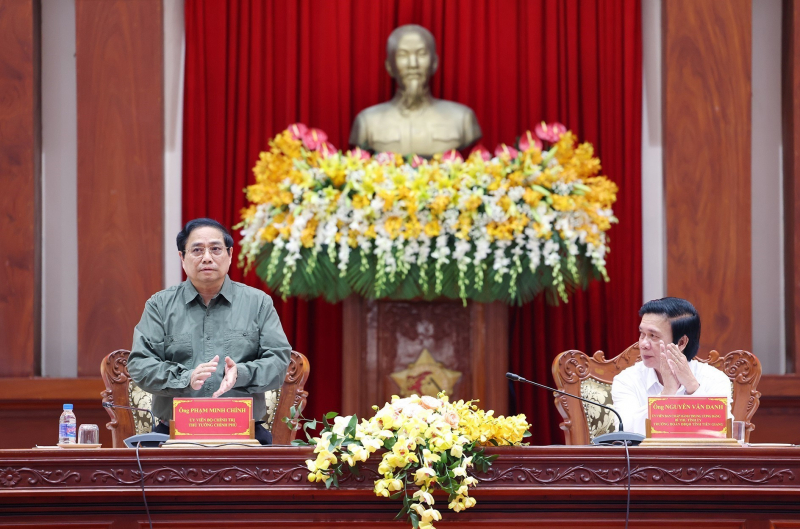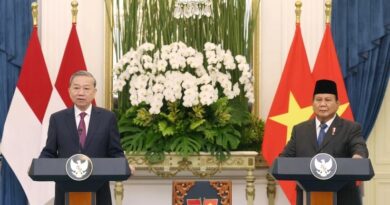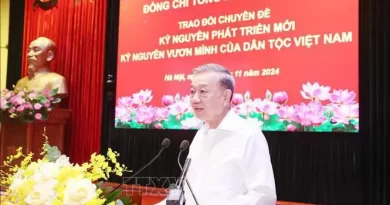Tien Giang urged to prioritise sustainable growth, address climate challenges
During a working session with the Standing Board of the provincial Party Committee on March 24, Prime Minister Pham Minh Chinh emphasized the need for the Mekong Delta province of Tien Giang to achieve balanced development across socio-economy, culture, and environment while upholding national defense and security.
Recognizing Tien Giang’s unique potential and competitive advantages, PM Chinh highlighted its capacity to emerge as a key growth pole in the Mekong Delta region by fostering industries, trade, and services.

He urged the province to effectively implement resolutions from the 13th National Party Congress and the Party’s directives on socio-economic development, national defense, and security. Additionally, PM Chinh stressed the importance of aligning with the state’s policies, laws, government directions, and provincial Party Congress resolutions.
Tien Giang was tasked with accelerating sustainable development through embracing science, technology, green practices, circular economy principles, and e-commerce. Administrative reform to enhance the business environment and promote transparency within the administrative system was also emphasized.
In terms of future plans, the province was directed to prioritize socio-economic infrastructure development through foreign direct investment and public-private partnerships, as outlined in its master planning scheme for the 2021-2030 period.
Improving rankings in key indices such as the Provincial Competitiveness Index (PCI), the Provincial Governance and Public Administration Performance Index (PAPI), and the Public Administration Reform Index (PAR INDEX) was deemed essential. Furthermore, enhancing digital transformation and innovation at the provincial level was emphasized.
The Prime Minister stressed the importance of building a strong and transparent Party and political system while combating corruption, negative phenomena, and wastefulness.
Regarding climate challenges, delegates suggested that Tien Giang focus on mitigating the effects of climate change, including landslides, subsidence, and saline intrusion. They also recommended pooling resources for strategic infrastructure development and establishing major industrial hubs to strengthen local production and supply chains, fostering connectivity with regional and global markets.


